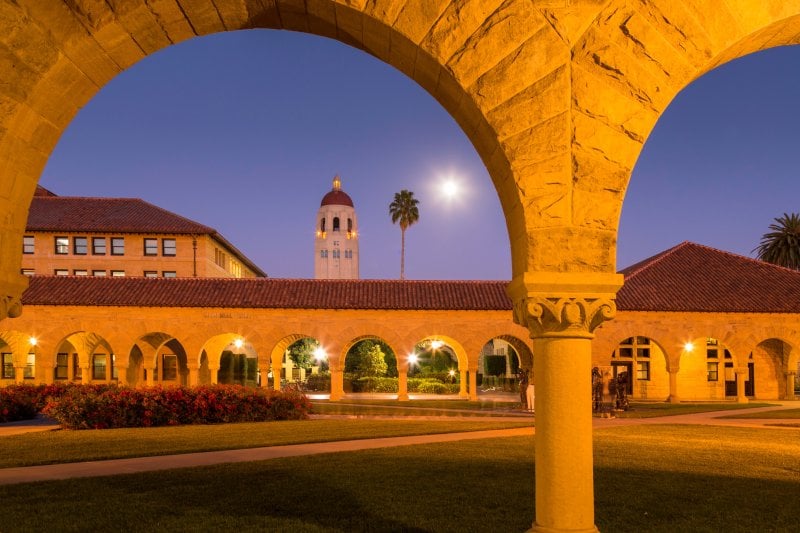To the editor:
We are writing in response to your report on the Faculty Senate’s discussion of proctoring to clarify our view on why the faculty had to act now and to encourage the Undergraduate Senate to work with the faculty on improving academic integrity.
Over the last 3 years the “C-12” committee composed of five students, five faculty and two administrators have worked tirelessly to study the Judicial Charter and Honor Code. The committee was given the explicit goal of finding a compromise among undergraduate students, graduate students and faculty. To that end, the C-12 conducted extensive outreach both inside and outside Stanford, and used that information to craft modest compromise proposals. Those proposals are true steps forward to improve academic integrity in the classroom and help students learn from their mistakes, rather than be unnecessarily punished. All stakeholder groups that have considered the proposals have adopted them, with one exception: the Undergraduate Senate, who rejected the Honor Code proposal. Undergraduate representatives told the Senate that students found a proposed study of proctoring unacceptable.
Under the mutually agreed C-12 procedures, the Undergraduate Senate’s rejection of the C-12 proposal ended the C-12 process as regards the Honor Code, and placed the entire Stanford community at an impasse. The faculty want to work with students to improve academic integrity. However, the Undergraduate Senate’s rejection of the modest Honor Code proposal from the C-12 indicates that they fail to appreciate the dire state of academic honesty on campus and are refusing to compromise to improve the situation.
The situation, both on and off campus, is dire, and with the advent of new technology can be expected to get worse. For instance, the Faculty Senate heard two weeks ago about a remote exam in a required CS class which turned out to be harder than expected, and where there is evidence that 30-50% of the students cheated. It seems that as more students heard about the cheating, some felt they needed to do the same. This problem is not unique to Stanford. In exit surveys conducted by the Harvard Crimson and the Daily Princetonian, approximately 20-30% of seniors at those institutions admit to having cheated. Whatever the reasons, the status quo is fundamentally incompatible with Stanford’s values and cannot be allowed to continue. This is a view widely held among the faculty: several of the faculty who voted against our motion to proctor exams agree that the current situation is unsustainable.
Perhaps most troubling, our current policies and climate put honest students in an extremely difficult position: It is very hard to stand by your principles when you see classmates that cheat gain an advantage.
To be clear, we are not blaming students for the current academic climate. The faculty have failed and we owe the students better. Proctoring is one step towards the faculty reclaiming our responsibilities. Of course, we don’t want to spend our time proctoring or engaging with time-consuming judicial proceedings. The view that ‘the Honor Code makes this the students’ problem’ has allowed the faculty to neglect our responsibilities for too long. All parts of our community must step up if we are to create a climate of true academic integrity.
Breaking with 100 years of tradition was not a step taken lightly. But it is clear that the Faculty Senate was operating well within its authority and well within the spirit of earlier collaborations with students for shared academic integrity. The Honor Code was built on norms of students monitoring each other. For example, in 1955 the ASSU Honor Code Study Subcommittee made a powerful statement on the responsibility of students to monitor to ensure integrity. For whatever reason, this responsibility appears to have languished. According to the C-12 report, in the last 3 years only 2 of the 720 reports of Honor Code violations came directly from students. Of course some reports were made from students to instructors first, but it is hard to reconcile these numbers with any substantive level of student self-monitoring. We are told that the C-12’s outreach sessions confirmed that overwhelmingly students do not want to monitor each other. There was more consensus on this than on whether the faculty may or may not act as proctors.
Allowing proctoring is certainly not the end of the story. As was discussed in the Faculty Senate, it seems likely that much cheating happens in settings other than in-class exams. We have much more to do. Whether they choose to let the proctoring proceed in the Autumn or prefer to return to the study of proctoring proposed by the C-12, we urge the undergraduate leadership to engage with the problem of academic integrity, as the student representatives on C-12 did so effectively. What ideas do the students have to prevent cheating? What affirmative steps forward do the students want to take? Students are probably best placed to come up with practical and effective strategies, in what must surely be our shared interest in ensuring academic integrity at Stanford.
Justin Grimmer, Professor of Political Science
Juan Santiago, Professor of Mechanical Engineering
Richard Taylor, Professor of Mathematics
